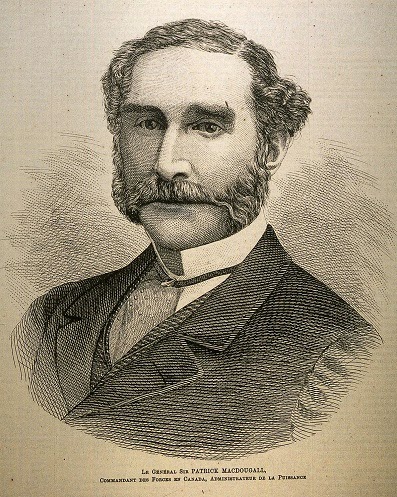October 25, 1867
NEW FACTS IN COMMERCIAL BANK CASE
We draw your attention to yesterday’s publication which contained a statement of facts then known about the collapse of the Commercial Bank. To those we add the following, courtesy of the Montreal Herald:
- The $300,000 loan the Commercial Bank received from the Bank of Montreal at the end of September was requested by the Government. It was secured by the value of Commercial Bank notes and repayable in November and December at a rate of six per cent.
- On October 16, the Commercial sought another $500,000 from the Bank of Montreal as the Commercial was still unable to cover the withdrawal of deposits.
- This request was denied on account of the Commercial having failed to reduce its discounts and because the latest despots had already been secured.
- The Commercial then sought a loan from the Government which was also declined.
- The Commercial then returned to the Bank of Montreal which again declined the request but suggested that the Commercial apply to the other banks in Ontario, offering to assist any of those banks that might wish to help the Commercial but be unable to do so.
- The Bank of Montreal then approached the Bank of British North America and proposed that the two banks secure the loans to the other banks, should any be requested, at a rate of two-thirds and one-third each.
- On October 21, a meeting was held at the offices of the Bank of British North America and was attended by representatives of The Bank of Montreal, the Bank of British North America, the Ontario Bank, the Bank of Toronto, the City Bank of Montreal, the Royal Canadian Bank, and the directors of the Commercial Bank.
- The Commercial Bank then issued a request for a $750,000, offering to repay one half in four months and the other half in six months, and securing the loan with the Detroit and Milwaukee Railway bonds. It was at this point the Ontario banks were informed of the offer of the Bank of Montreal and the Bank of British North America to provide loans to the Ontario banks as required to fulfill the Commercial request.
- The Ontario banks rejected the offer from the two banks on the grounds that they did not need any assistance.
- The Ontario banks then argued in favour of the assistance to the Commercial being made on the proportion of capital rather than in proportion to immediate liabilities.
- The Bank of Toronto then suggested that the Bank of Montreal surrender the securities it received for the loan in September and that the bonds of the Detroit and Milwaukee be held in common.
- The Bank of Montreal declined the proposal stating that its previous assistance to the Commercial was not a part of the current discussions. The bank also pointed out that it had offered to advance supports to the other banks in order to secure a deal but this was rejected.
- At this point, the Bank of Montreal representatives withdrew from the meeting to allow the banks to continue their discussions, offering to return once the banks had decided on a course of action.
- The banks decided on aid in the following amounts:
- British North America - $100,000
- Toronto - $60,000
- City - $72,000
- Royal Canadian - $60,000
- Ontario - $120,000 This amounted to $412,000 of the $750,000 requested by the Commercial Bank. It was felt that another $192,000 would be available from the Gore Bank, the Merchants’ Bank, and the Québec Bank, who were not in attendance at the meeting. This would make the total amount available to the Commercial $604,000. The loans were contingent on their approval by the respective bank presidents.
- The Minister of Finance, Hon. Alexander Galt, who had been summoned to the meeting, took news of the offer to the Bank of Montreal, along with the president of the Commercial Bank.
- Contingent on the approval of the agreement, the Bank of Montreal offered to delay the due date of its original $300,000 to coincide with the terms of the new loans.
- The Bank of British North America then gave the Commercial an advance of $100,000 in the form of the Commercial’s own notes.
- Some time later the telegrams arrived from Ontario with news that the bank presidents had refused the arrangements agreed to at the meeting.
- The Commercial made one final plea to the Bank of Montreal for aid. They were again refused.
- At this point the decision was made to move ahead with the suspension of the bank’s operations.
THE DANGERS OF MONOPOLY
It is unknown whether the facts of the case as outlined above were before the Hamilton Evening Times when they excoriated the Bank of Montreal for refusing to come to the assistance of the Commercial Bank, writing:
We fear the Bank of Montreal has the Government in its power, and is disposed to play the tyrant, not only over all other monetary institutions in Canada as far as it can, but over the Government itself. It is a matter of universal regret that any one great monied institution should have almost sole control over the currency and finances of the country. The Grand Trunk and the Bank of Montreal are the two great overshadowing monopolies that threaten the welfare and prosperity of the country.
Though the facts may not be exactly as understood at the time of the above opinion was written, it is certain that the case of the Commercial Bank has presented the Government with significant legislative challenges.
JOHN A. TO MONTREAL
The prime minister, Sir John A. Macdonald left Ottawa last night on a special train to meet with the finance minister, Hon. Alexander Galt. Galt has been in Montreal for several days now, having first travelled to the city to meet Edward King, general manager of the Bank of Montreal to plead for the life of the Commercial Bank. The exact purpose of the meeting is unknown but it is hardly thought to be for positive reasons.
Meanwhile, rumours whip ‘round Parliament Hill of an imminent schism between Macdonald and Hon. George-Étienne Cartier (Militia). The Ottawa Citizen rejects these rumours as the workings of the imagination of the correspondent of the Globe stationed in Ottawa. If true, however, the opening of Parliament will be anything but a happy occasion for the prime minister.
BANK PANIC
There were runs on the Gore Bank of Hamilton and the Royal Canadian Bank of Toronto yesterday after rumours began to spread around the respective cities that the banks are big losers in the Commercial Bank drama. Each bank reports that its notes are fully backed by the gold they have in their vaults. The panic eventually subsided.
Yet where one panic ebbs, others flow. With the close of the navigation season nearly upon us, word circulates that some farmers are refusing to sell produce for anything other than specie. This despite the fact that there is zero indication that any other bank in the Dominion suffers from the same specific causes of the Commercial’s decline.
Both the Montreal News and the Ottawa Times concur that it is in the interest of every bank in the Dominion to restore the Commercial “in order to check the distrust creeping over society.” Given that the Commercial is the second bank to fail in the last two years, each in an atmosphere of general prosperity, such distrust is not so surprising.
To that end the Ottawa Times calls for the establishment of a national currency which would insulate the general public from deficiencies in a given bank’s character as well as insulate the banks from runs by any but its own depositors.
BANK OF COMMERCE
Amidst the drama of the closure of the Commercial Bank comes news from Toronto that the Bank of Commerce will establish an agency in that city.



















